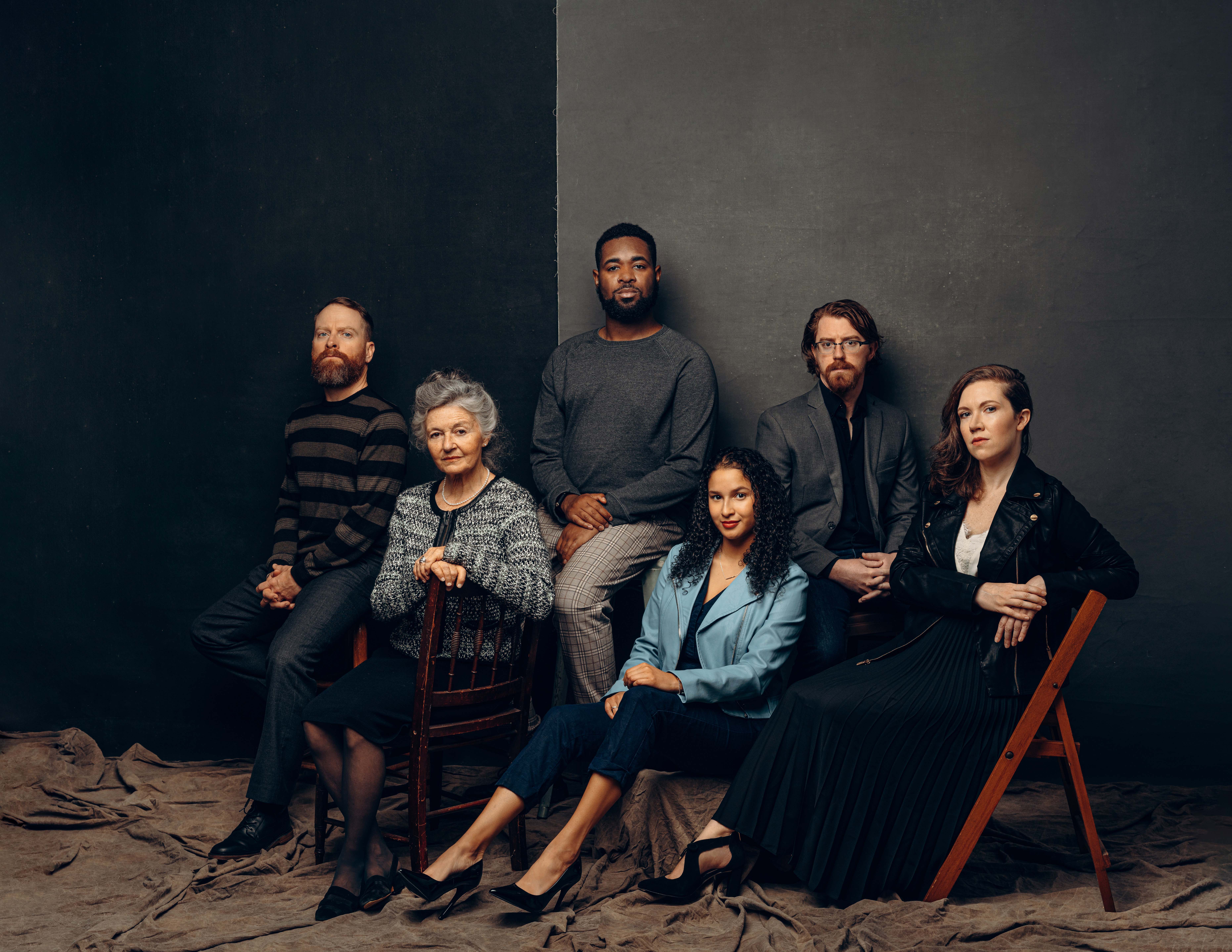This preview article from Andrew Huang was originally published in TOWN on January 4th, 2022. (Photos: Will Crooks)
There will be plenty of things to parse about The Lotus Paradox after its world premiere at The Warehouse Theatre. The new work, written by acclaimed playwright and screenwriter Dorothy Fortenberry (Hulu’s The Handmaid’s Tale) and directed by Jay Briggs, touches on topics ripped straight from the headlines of today: climate change, mental health, social media, the Me Too movement, and more.
But at its core, The Lotus Paradox is a story about generational friction and the way it rears its ugly (and sometimes absurd and humorous) head when it comes to defining success and relevancy, articulating ambition, and coping with expectation.
The Lotus Paradox is set in the home of beloved children’s novelist Nora Tennant on the eve of her birthday. Her two adult children are on hand, even as they grapple with the consequences of their mother’s successful trilogy, The Lotus Paradox. Hal, Nora’s son, is a clear analog to the series’ martyred child protagonist. Dealie, Nora’s daughter, is absent entirely from her mother’s literary work. One struggles to live up to the standards of his literary doppelganger, the other endures the slight of being forgotten. The family dynamics are further complicated by Nora’s editor—intent on wringing every ounce of commercial success from the trilogy while stonewalling publication of Nora’s experimental fourth book— and the unannounced arrival of a young superfan with her own literary aspirations.
The Next Generation

As these characters navigate their relationships, the play returns to the central question: What can we expect from age and youth? “So much of children’s literature has this idea that children will be the saviors, that the adults are compromised and useless,” Fortenberry says. That framing has consequences within The Lotus Paradox and resonances in our lived reality.
“It feels really similar to how older people talk about youth relative to climate change,” she says. “We’re just gonna hand everything over to the next generation. These wonderful teenagers and young people are going to fix everything.” Briggs adds a corollary, “What kind of pressure does that expectation put on the next generation? And does it push them past the breaking point?”
This triad of generational friction—Gen X vs. Millennial vs. Gen Z—feels particularly relevant, especially in the wake of holiday gatherings. And that is the blessing of The Lotus Paradox: “It’s a chance to sit in those moments of connection, betrayal, and bad choices,” says Fortenberry. “We can observe our own mistakes and foibles.”
“By watching these characters fumble their way through, you’re learning how to not have those conversations with your family,” adds Briggs. “And maybe you are getting a rehearsal for conversations you want to see happen.”




